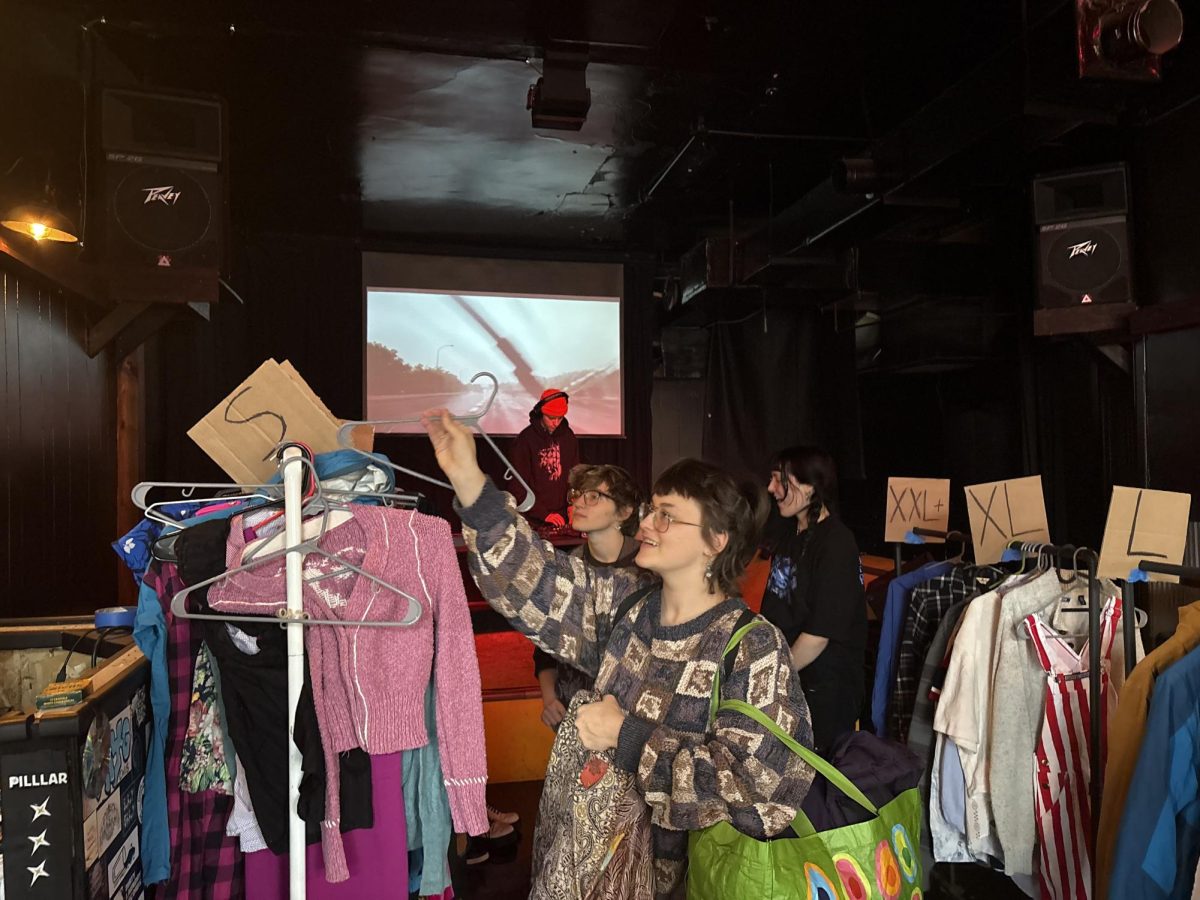SBy Michelle Horton  ince it is a children’s play, I didn’t expect that “Korczak’s Children,” the latest production by the Children’s Theatre Company, would provoke me to think about my death. Specifically, I did not expect to leave the theater reconsidering what it means to live, what it means to die and what the meaning of life is all about. The stage dims and blackness takes over the theater. Sparkling stars appear, and we hear a comforting voice telling us that Earth, unlike the other planets in the solar system, was once upon a time overlooked by the intergalactic rays transforming energy into morality and ethics. We are to accept chaos and confusion; we are to accept acts without reason.
ince it is a children’s play, I didn’t expect that “Korczak’s Children,” the latest production by the Children’s Theatre Company, would provoke me to think about my death. Specifically, I did not expect to leave the theater reconsidering what it means to live, what it means to die and what the meaning of life is all about. The stage dims and blackness takes over the theater. Sparkling stars appear, and we hear a comforting voice telling us that Earth, unlike the other planets in the solar system, was once upon a time overlooked by the intergalactic rays transforming energy into morality and ethics. We are to accept chaos and confusion; we are to accept acts without reason.
The plot of “Korczak’s Children” is relatively simple: There are approximately 171 children in an orphanage in the Warsaw ghetto in the midst of World War II. Dr. Korczak runs the orphanage and loves the children dearly. The children want to put on a play in the last 24 hours that they will spend in the care and safety of the ghetto orphanage. They don’t know that they are destined to die in the Treblinka death camp, the largest of the three death camps of the Holocaust. Unconscious of the irony, the children choose to stage a play called “The Post Office,” about a young boy who is sick and cannot go outside, but nevertheless lives his life meaningfully until its end. By virtue of Dr. Korczak’s endless efforts to define and defend the rights of children, he is given opportunities to save himself. But in a display of true integrity, he walks side by side with the children, holding hands, into a certain tragic end.
While the plot might seem somber, we must remember that it is after all a play for children. The set is large and realistic. It truly looks like an orphanage, taking full advantage of the space with nooks and pillars galore. The lighting is superb; the simulations of daylight and sunsets coming through the cathedral windows and casting shadows through the orphanage are truly believable. The rendering of “The Post Office” is fantastic: The play takes on a level of abstraction that makes it meaningful for older children and adults. All in all, the look and feel of “Korczak’s Children” are well fashioned to balance out the more difficult moments of the play’s content.
The acting, on the other hand, is somewhat varied. Some of the children overacted (as is to be expected), and Barbara Kingsley’s performance as Steffa was overcooked; Steffa seemed entirely too Midwestern. Which leads me to a pet peeve that the production really hits on – uneven accents. Some of the actors used false albeit more realistic Polish accents, and some did not. For the children, I can understand. But the disparity between the tone of Steffa and Dr. Korczak was very problematic. The same was true of other actors portraying Jewish Council members. Entering the theater, you suspend that disbelief, and then someone with a Minnesotan accent comes in and tries to convince you you’re in WWII Poland. Had all the cast sounded Minnesotan it might have been more bearable. Regardless, Clyde Lund’s Dr. Korczak was impeccable and comforting, and totally saved the day, so to speak.
Dr. Korczak repeatedly asks the children what “The Post Office” is about. Is it about the boy’s life or death? Is it about the Nazis or the Jews? Finally, we are asked to think about what the meaning of our life is, of our death and the painfully beautiful interrelation between the two.
“Korczak’s Children” plays through April 19 at the Children’s Theatre,
(612) 874-0400







